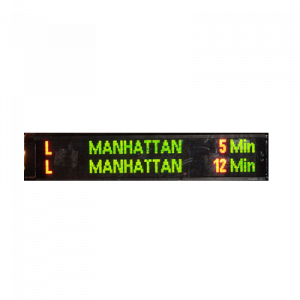Prospective MBA students often find themselves at a crossroads when deciding between pursuing their degree in Europe or Asia. Each region offers distinct advantages and characteristics that shape the MBA experience – from curriculum to costs, faculty to job prospects and cultural dynamics.
Curriculum differences
European MBA programs typically embrace a case-study approach, focusing on experiential learning and real-world applications of knowledge gleaned in the business classroom. These programs often come with a broad-based curriculum, covering a wide range of business disciplines such as finance, marketing, strategy and entrepreneurship.
On the other hand, Asian MBA programs tend to have a more specialized focus, catering to the specific needs of regional industries. For instance, programs in Singapore can emphasize finance and technology due to the city-state’s status as a financial hub and tech hotspot.
“European MBA programs typically have a broad focus on international business principles, while Asian MBA programs often provide a deep dive into local markets along with global business strategies,” explains Michelle Zhu, MBA administration director at China Europe International Business School (CEIBS) in Shanghai.
“This can be particularly advantageous for those looking to tap into expansive opportunities in Asia’s dynamic economies,” she adds.
Faculty and teaching methodologies
In Europe, MBA programs often boast a diverse faculty drawn from academia, industry and consulting backgrounds. Teaching methodologies in European MBA classrooms often involve lively discussions, group projects and interactive lectures.
“Peer-to-peer learning is encouraged. It enriches the overall experience of the program, helping students to shape their viewpoints, and prepares them to work with people from many different backgrounds and cultures,” says Sara Vanos, executive director of MBA admissions at HEC Paris.
Asian MBA programs, meanwhile, tend to feature a mix of local and international faculty, with a greater emphasis on lectures and traditional teaching methods.
“European programs can have diverse international faculties and a variety of teaching methods,” says Zhu at CEIBS. “However, Asian MBA programs can be very competitive in faculty diversity.”
Duration and structure
Both European and Asian MBA programs typically span one to two years, with some offering flexible formats such as part-time or executive options.
“The European job market presents unique challenges, and taking a two-year career break is often more complicated for our students compared to markets like North America. As a result, several top schools offer shorter MBAs,” says Stefano Pogutz, MBA director at SDA Bocconi school of management in Italy.
At SDA Bocconi, the full-time MBA program is modular and flexible. Students have the option to enter the job market after 9, 12 or 15 months, depending on their goals and ambitions. Asian MBAs also often include additional components like internships and language courses that help students engage with the local business culture and practices.
Costs and employment prospects
When it comes to costs, European MBA programs often command higher tuition fees compared to their Asian counterparts. Living expenses in Europe can vary widely depending on the city and country. Additionally, scholarships and financial aid opportunities are prevalent in MBA programs in both Europe and Asia.
“It is interesting to observe that the tuition fees for top-ranked MBA programs in Asia tend to be generally lower than those in Europe,” says Nicole Tee, director of the MBA programs office at NUS Business School in Singapore.
Both Europe and Asia offer promising employment prospects for MBA graduates, albeit in different industries and sectors. European MBA graduates often find opportunities in consulting, finance and multinational corporations, leveraging the region’s strong business ties and diverse economy.
Asian MBA graduates, on the other hand, benefit from the region’s rapid economic growth, particularly in sectors such as technology, healthcare and e-commerce. “Europe offers robust job opportunities in traditional industries such as finance and consulting. However, Asia’s rapidly growing sectors, particularly in technology and innovation, are creating new leadership roles and are keenly seeking MBA graduates with a deep understanding of regional contexts,” says CEIBS’ Zhu.
Vanos, at HEC Paris, says: “MBA students can stay in France for up to one-year post graduation to search for their dream job if they wish. Many students receive work visas for France and the surrounding Schengen countries. Over one third of our international students stay in France.”
Cultural differences
Cultural differences play a significant role in shaping the MBA experience in both Europe and Asia. European MBA programs tend to promote a culture of debate, critical thinking and diversity, reflecting the region’s multiculturalism and openness. In contrast, Asian MBA programs often place a greater emphasis on hierarchy, respect for authority and group harmony, reflecting cultural norms prevalent in many Asian societies.
Ultimately, the choice between pursuing an MBA in Europe or Asia depends on individual preferences, career goals and cultural adaptability. While European MBA programs offer a diverse and immersive learning experience, Asian MBA programs provide specialized knowledge tailored to regional industries.















